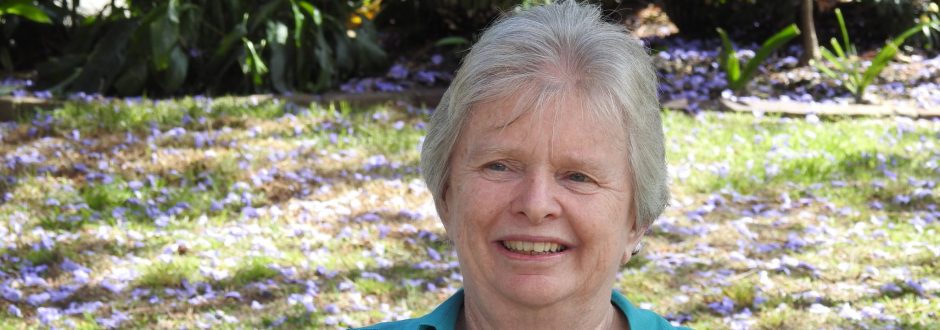I am grateful for the decision of my sisters to venture to Japan in 1948 however “imprudent, untimely and injudicious” it was from a rational point of view, writes Good Samaritan Sister Clare Condon.
BY Clare Condon SGS
On October 15, 1948, six Sisters of the Good Samaritan left Australian shores on an unpredictable adventure to serve the people of Nagasaki, Japan, after the devastation of World War II. The city had been destroyed by an atomic bomb just three years earlier on August 9, 1945. That disastrous bombing killed a third of the population of Nagasaki.
As they left their peaceful Australian home, these six women, five of them under 30 years of age, did not expect to ever return to Australia. They had gone thinking this mission would be for the rest of their lives. However, all of them did return at various times and one of them, now aged in her 90s, lives in Balmain, Sydney. Other sisters followed this original group of six, some staying for over 30 years. Their story is the story of many Catholic religious women of their time.
I am struck by the significance of that journey for my congregation, especially so as I am currently in Japan visiting the nine Japanese sisters now living in community and ministering in Nara, Japan. I ask myself, what meaning and grace can we take from these 68 years of intercultural interaction and the ongoing and developing understanding of one another in intercultural settings?
Unlike those first sisters who spent weeks on a post-war Chinese boat, the SS Changte, I flew with Qantas across the sea in nine hours. How the world has changed in many ways since 1948! And yet, how many realities have not changed when it comes to a true and deep understanding and appreciation of cultural and ethnic differences, so that such diversity actually enriches everyone?
Margaret Walsh, author of The Good Sams, a history of my congregation, wrote about this 1948 adventure into the unknown by these Aussie religious sisters saying: “To the rationalist, the decision to start a foundation in Japan was imprudent, badly timed, injudicious” (p.292).
Such is the case of many stories of risk-taking in the lives of individuals, families, communities and nations. We, who think we can control much of life through rational processes, are often left wondering why things work out differently, or not as we planned or expected. For us who live by faith, there is another dimension to why we do what we do. Often the unexpected, even the failure, becomes gift and grace.
The sisters, both Japanese and Australian, over the past nearly 70 years, have educated many young people and served those in need with welfare support, guidance, encouragement and friendship. Yet, I believe their greatest joint achievement, which has become gift and grace for all of us, has been the intercultural trust and relationships developed between those Japanese sisters who joined the congregation and the Australian sisters who served with them. This strong intercultural appreciation has influenced other riches for us as a congregation in connecting with diverse cultures, such as in the Philippines and Kiribati.
In post-war Australia, some of the families and friends of the sisters, ordinary Australians who had experienced the war, objected to the sisters reaching out to the Japanese people. They struggled with their generosity of spirit. They thought it was madness, as the Japanese were still regarded as the enemy. That past enemy was culturally different. They were to be feared and not to be trusted.
Unfortunately, today in our world we hear too often the same rhetoric about ethnic divides and intolerance of difference, though it relates to other peoples and nations. Not much seems to have changed; fear of the ‘other’ often dominates global political discourse. The message we hear from some significant political leaders is to fear the ‘other’, to keep one’s distance, and to stay insulated from and at enmity with one another.
However, while here in Japan I am being deeply enriched by the sharing and hope engendered. I am benefitting from the outcome of a vibrant cross-cultural endeavour, with Japanese and Australian sisters sharing their faith and their hopes. Language does not have to be a barrier.
In our current meetings, our language translator, who is from the Congo, is fluent in both English and Japanese, amongst many other languages. The sisters here in Nara are part of a parish administered by Filipinos. If only more of the citizens of our world could have similar experiences of shared grace and gift as I have had over these few days, perhaps approaches to, and rhetoric about, diversity in culture could be a blessing not a curse.
As I return home to Australia on Saturday October 15, the 68th anniversary of that first endeavour to Japan in 1948, and also the vigil of the anniversary of the death of our co-founder, Mother Scholastica Gibbons RSC, I am grateful for the decision of my sisters to venture to Japan in 1948 however “imprudent, untimely and injudicious” it was from a rational point of view. Taking the risk in faith has been both grace and gift to so many people, but especially to us who have followed them.
